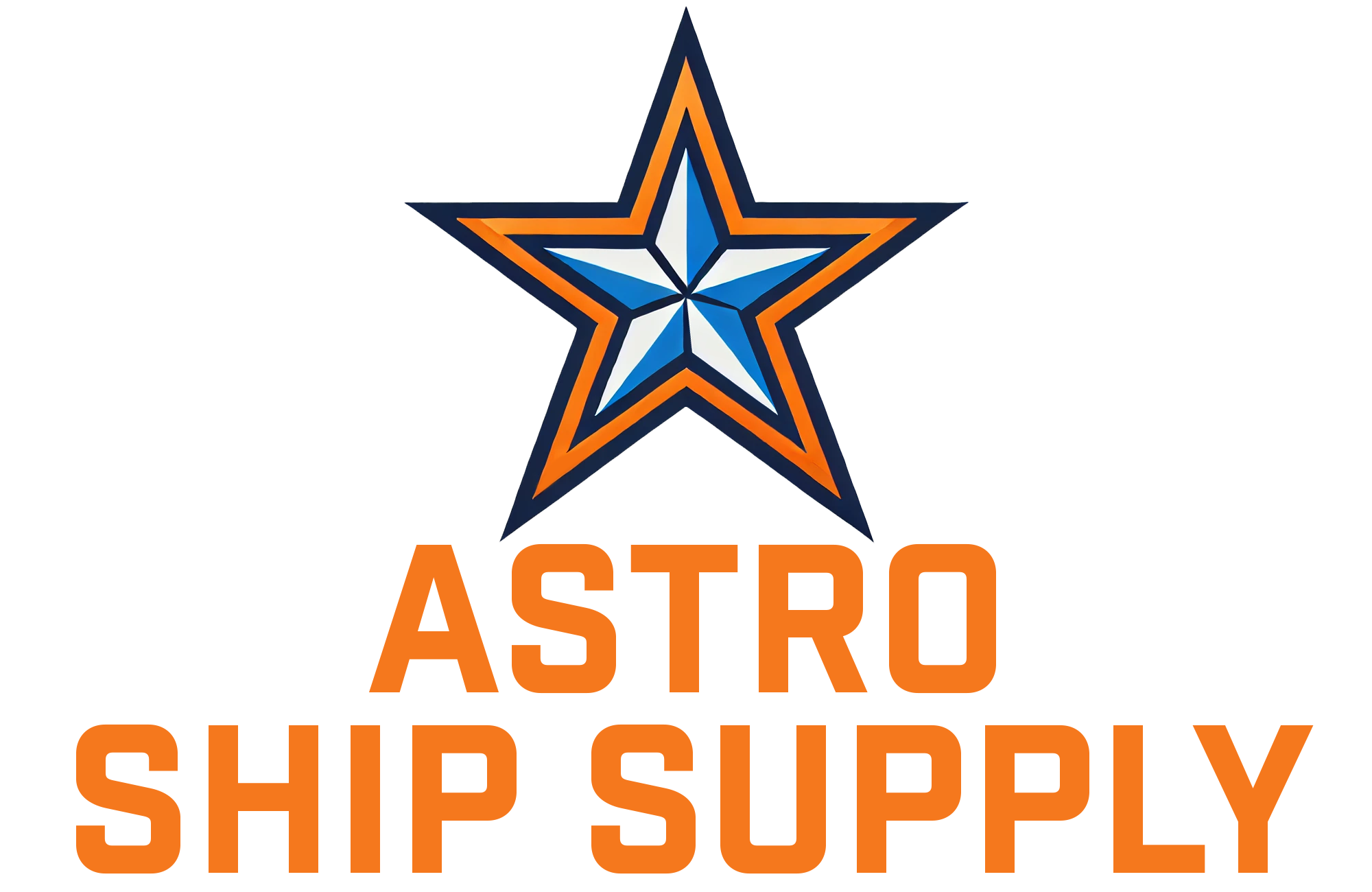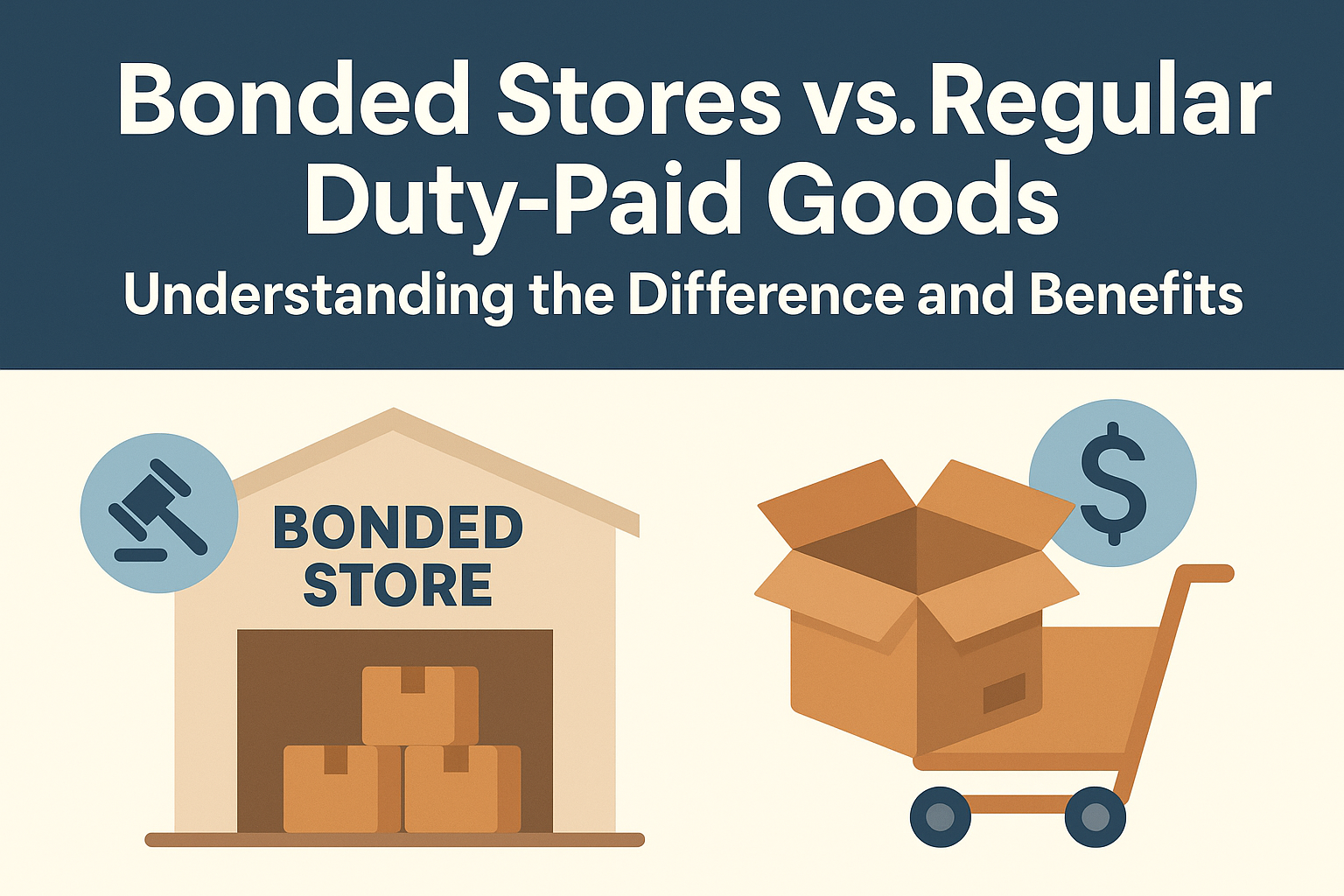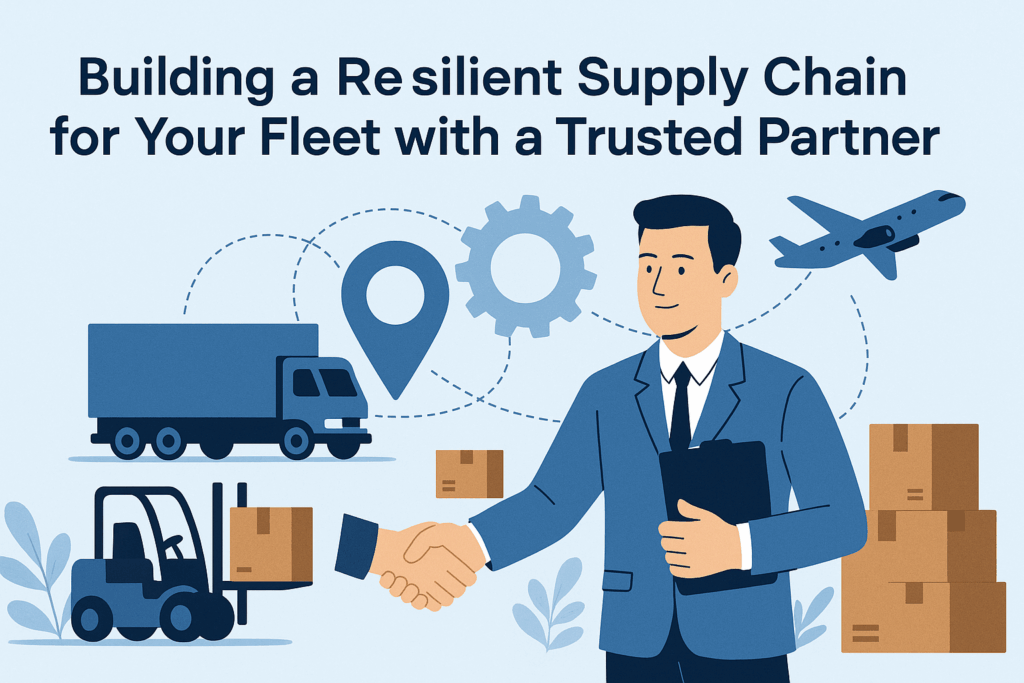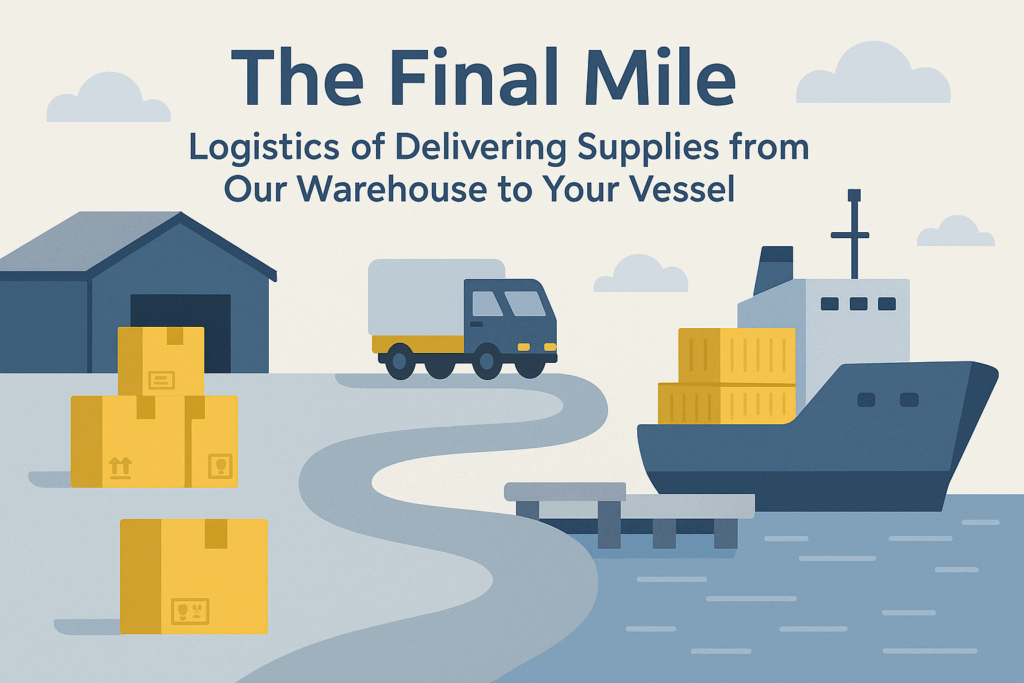For those new to the intricacies of ship supply, the terms might seem interchangeable, yet their implications are vast. This comprehensive guide will demystify bonded stores, offering an in-depth comparison, practical use cases, and actionable insights to optimize your vessel’s inventory management and operational costs. Whether you’re a seasoned procurement manager or a new vessel owner, preparing for a long voyage or a quick port call in Houston, this knowledge is indispensable.
What Exactly Are Bonded Stores?
At its core, a **bonded store** refers to goods that are exempt from customs duties, taxes, and excises because they are intended for consumption on board a vessel engaged in international voyages. Think of them as a duty-free shop at sea, but with a broader range of products. These goods are kept in a customs-controlled warehouse on land until they are ready for delivery to the vessel, remaining “in bond” until officially consumed outside the territorial waters of a specific country.
Key Characteristics of Bonded Stores:
- Duty and Tax Exemption: The primary benefit is the exemption from import duties, taxes, and other local levies that would otherwise apply to goods purchased within a country’s customs territory.
- International Voyage Requirement: Goods can only be supplied as bonded stores if the vessel is engaged in an international voyage, meaning it’s departing to or arriving from a foreign port.
- Strict Customs Control: The storage, handling, and delivery of bonded goods are subject to rigorous customs regulations and oversight to prevent their illicit diversion into the domestic market.
- Variety of Goods: Bonded stores typically include a wide array of items beyond just consumables, encompassing tobacco, alcoholic beverages, luxury goods, and even certain technical supplies.
This system was established to facilitate international trade and allow vessels to provision themselves efficiently without incurring additional costs that would be passed on to cargo or passengers. It’s a cornerstone of the global maritime economy, ensuring that the wheels of commerce continue to turn smoothly.
Regular Duty-Paid Goods: The Conventional Alternative
In contrast, **regular duty-paid goods** are exactly what they sound like: products purchased within a country’s customs territory, subject to all applicable import duties, taxes, and sales levies. When a vessel operator opts for duty-paid goods, they are essentially buying items from the local market, just like any other consumer or business.
Key Characteristics of Regular Duty-Paid Goods:
- Full Taxation: These goods incur all standard customs duties, VAT (Value Added Tax), sales taxes, and any other local charges.
- No International Voyage Restriction: They can be supplied to any vessel, regardless of its itinerary (domestic or international).
- Fewer Regulatory Hurdles (for the supplier): While still subject to general import/export and sales regulations, the supplier doesn’t need to adhere to the specialized customs bond procedures required for bonded stores.
- Local Market Availability: Access to a broader range of locally available products and potentially quicker delivery for immediate needs, as they don’t need to pass through a bonded warehouse.
While seemingly straightforward, opting for duty-paid goods can significantly inflate procurement costs, especially for high-volume items or those subject to substantial duties, like alcohol and tobacco.
Bonded Stores vs. Regular Duty-Paid Goods: A Comparative Analysis
To truly appreciate the strategic implications, let’s break down the differences across several critical dimensions. This comparison will highlight why understanding these distinctions is vital for effective vessel management.
| Feature | Bonded Stores | Regular Duty-Paid Goods |
|---|---|---|
| Cost Implications | Significantly lower due to exemption from duties, taxes, and excises. Potential for substantial savings, especially on high-duty items. | Higher due to inclusion of all applicable duties, taxes, and local levies. Can significantly increase overall procurement costs. |
| Eligibility Requirements | Only for vessels engaged in international voyages (departing to/arriving from foreign ports). Strict customs control required. | Available to all vessels, regardless of their itinerary (domestic or international). No specific international voyage requirement. |
| Product Range | Generally focused on items for crew consumption and vessel operation, including duty-free alcohol, tobacco, luxury goods, and often specific technical supplies. | Access to a broader range of locally available goods, as they are purchased from the domestic market. |
| Regulatory Oversight | Highly regulated by customs authorities; strict documentation, storage, and delivery protocols are enforced to prevent diversion. | Subject to general import/export and sales regulations, but without the additional specialized customs bond procedures. |
| Delivery Logistics | Requires a licensed bonded store supplier to deliver goods under customs supervision. Often involves specific delivery windows and documentation. | Can be supplied by any local vendor. May offer more flexibility in delivery times and methods, depending on the supplier. |
| Crew Morale & Benefits | Offers a cost-effective way to provide crew with duty-free amenities (e.g., snacks, beverages, personal items), enhancing morale without breaking the budget. | Crew amenities would be significantly more expensive, limiting the scope of what can be provided without substantial cost. |
| Operational Efficiency | Streamlines international provisioning by consolidating purchases under one tax-exempt umbrella. Reduces administrative burden related to tax rebates. | Can complicate international provisioning with varied tax structures across different ports. Requires careful accounting for tax paid. |
As evident from the table, the financial implications alone make bonded stores a compelling option for internationally operating vessels. The savings can be substantial, directly impacting your vessel’s operational budget.
Strategic Advantages of Utilizing Bonded Stores
Beyond mere cost savings, leveraging bonded stores offers several strategic benefits that contribute to overall operational excellence and crew welfare.
1. Significant Cost Reduction
The most obvious advantage is the direct financial savings. By avoiding import duties, sales taxes, and excise duties, vessels can procure essential provisions, luxury items, and even certain technical supplies at a fraction of the cost they would incur with duty-paid alternatives. For vessels with high consumption rates, this translates into thousands, if not tens of thousands, of dollars saved annually. Imagine the savings on something as common as bottled water or soft drinks for a large crew over a year!
2. Enhanced Crew Morale and Welfare
A happy crew is an efficient crew. Bonded stores allow vessel operators to provide a wider variety of amenities, including popular snacks, beverages, personal care items, and even entertainment options, at much more affordable prices. This access to familiar comforts, often unavailable or prohibitively expensive in foreign ports, significantly boosts crew morale, reduces stress, and fosters a more positive onboard environment. A well-rested and content crew is less prone to errors and more productive.
3. Simplified Procurement and Logistics
Working with a specialized ship chandlery like Astro Ship Supply for bonded stores streamlines your procurement process. Instead of managing multiple suppliers in different ports and navigating complex tax rebate systems, you can rely on a single, experienced provider to handle the entire process, from customs clearance to onboard delivery. This reduces administrative burden and minimizes the risk of delays or complications.
4. Consistent Quality and Supply Chain Control
Reputable bonded store suppliers maintain stringent quality controls and robust supply chains. This ensures that the provisions and supplies delivered to your vessel meet international maritime standards and are of consistent quality, regardless of the port. For instance, Astro Ship Supply’s commitment to quality control throughout their Texas-based supply chain ensures that fresh produce and frozen goods always meet maritime standards, a critical factor for crew health and satisfaction.
5. Compliance and Risk Mitigation
Entrusting your bonded store procurement to an experienced chandlery ensures compliance with complex international customs regulations. They handle the intricate paperwork, declarations, and supervision requirements, minimizing the risk of fines, delays, or legal issues. This expertise is invaluable, especially when navigating diverse international waters and their varying customs laws.
Practical Use Cases and Case Studies
Let’s illustrate the advantages with some real-world scenarios:
Case Study 1: The Long-Haul Cargo Vessel
A cargo vessel embarks on a three-month journey across multiple continents. Its crew of 25 requires a substantial amount of provisions, including food, beverages, tobacco, and personal hygiene items. If they were to purchase these items duty-paid at every port of call, the cost would escalate dramatically. By stocking up on **bonded stores** before departure from a major hub like Houston, the vessel saves tens of thousands of dollars on consumables. Additionally, the crew benefits from a consistent supply of their preferred brands and items, improving morale during long stretches at sea. Astro Ship Supply often works with such vessels, delivering comprehensive bonded store packages that anticipate their long-term needs.
Case Study 2: The Cruise Ship Provisioning
While cruise ships operate on a much larger scale, the principle remains the same. Imagine a cruise ship with thousands of passengers and crew members. The sheer volume of alcohol, tobacco, and luxury goods consumed on board makes **bonded stores** an absolute necessity. Without duty exemptions, the cost of these items would be astronomical, making the entire duty-free shopping experience onboard unfeasible. Suppliers provide these items in bulk, ensuring the cruise line can offer competitive prices to passengers while maintaining profitability.
Case Study 3: Emergency Technical Supplies for a Tanker
A tanker requires a specific set of tools and spare parts for an unexpected repair while en route to a foreign port. Sourcing these as **bonded stores** from a port with a robust chandlery service means the required items can be delivered directly to the vessel without incurring import duties, even if they are urgently needed. This is crucial for minimizing downtime and avoiding costly delays. While provisions are the most common example, many technical supplies also qualify, especially for critical vessel operations.
How to Choose the Right Ship Chandlery for Bonded Stores
Selecting a reliable partner for your bonded store needs is paramount. Here’s what to look for:
Expertise in Customs Regulations
Ensure the chandlery has a deep understanding of international and local customs regulations for bonded goods. They should be well-versed in documentation, declaration, and delivery protocols. Astro Ship Supply, for instance, highlights its compliance with ISO 9001:2015, HACCP, and ISPS Code, demonstrating a commitment to regulated and quality service.
Robust Supply Chain and Inventory Management
A good chandlery will have a secure, efficient supply chain capable of handling a wide range of products, from perishables to high-value items, all while maintaining their bonded status. They should also offer reliable inventory management to ensure availability.
24/7 Availability and Timely Delivery
The maritime industry never sleeps. Your chandlery should offer round-the-clock support and guarantee timely deliveries to avoid vessel delays. As stated by Astro Ship Supply, “Every delivery is 100% guaranteed – and we’re available 24 hours per day.” This commitment is crucial.
Quality Assurance and Compliance
Look for certifications like ISO 9001:2015 for quality management and HACCP for food safety, especially when dealing with provisions. Compliance with U.S. Customs and Border Protection requirements for bulk compliance is also vital. These certifications attest to a chandlery’s commitment to excellence and regulatory adherence.
Competitive Pricing and Transparency
While cost savings are a key benefit, ensure the pricing is competitive and transparent, with no hidden fees. A reliable chandlery will provide clear quotes and communicate any potential charges upfront.
Navigating the Future of Ship Supply in Houston and Beyond
The Port of Houston, as a vital hub in the Gulf Coast region, serves as a critical location for vessel provisioning. Ship chandlers operating here, like Astro Ship Supply, play a pivotal role in ensuring vessels are well-equipped for their international journeys.
As the maritime industry continues to evolve, with increasing demands for efficiency, sustainability, and crew welfare, the strategic importance of well-managed bonded store services will only grow. Leveraging these services not only optimizes costs but also contributes to a smoother, more efficient, and more compliant operation. It’s about smart solutions that help you stay ahead in a fast-paced environment.
To learn more about how bonded stores can specifically benefit your vessel, or to request a personalized quote for your next port call, consider reaching out to experienced providers. Understanding and utilizing this service is not just good practice; it’s a strategic imperative for modern maritime operations.
Frequently Asked Questions (FAQ)
What types of goods can be considered bonded stores?
Bonded stores typically include a wide range of items intended for consumption or use on board vessels engaged in international voyages. This commonly includes tobacco products, alcoholic beverages, luxury items, soft drinks, snacks, personal care products, and even certain technical supplies like spare parts or specific tools, provided they are for the vessel’s own use and not for resale or diversion into the domestic market.
Are bonded stores only for large cargo ships?
No, bonded stores are not exclusively for large cargo ships. Any vessel engaged in international voyages, including cruise ships, tankers, offshore supply vessels, and even yachts, can be eligible to receive bonded stores, provided they meet the customs regulations of the port of supply and their destination. The key criterion is the international nature of the voyage.
How do bonded stores impact crew morale?
Bonded stores significantly boost crew morale by allowing access to duty-free items that would otherwise be expensive or unavailable in foreign ports. This includes familiar snacks, beverages, tobacco, and personal care products. Providing these comforts helps alleviate the stresses of long voyages, fosters a sense of appreciation, and contributes to a more positive and productive onboard environment. It’s a direct investment in crew welfare.
What is the main difference between bonded stores and duty-free shops at airports?
While both offer duty-free goods, the key difference lies in their operational context and target audience. Duty-free shops at airports cater to international travelers for personal consumption upon departure or arrival. Bonded stores, conversely, are specifically for provisioning vessels engaged in international voyages, with goods intended for consumption by the crew and passengers exclusively on board the vessel, not for personal import by individuals. The regulations and scale of supply also differ significantly.
How can I ensure compliance when ordering bonded stores?
The best way to ensure compliance is to partner with a reputable and experienced ship chandlery that specializes in bonded stores. They will have the necessary licenses, customs bonds, and expertise to navigate the complex regulations, handle documentation, and ensure proper delivery and accountability of the goods. Always verify their certifications (e.g., ISO, HACCP) and their understanding of relevant international codes like the ISPS Code and U.S. Customs and Border Protection requirements.






